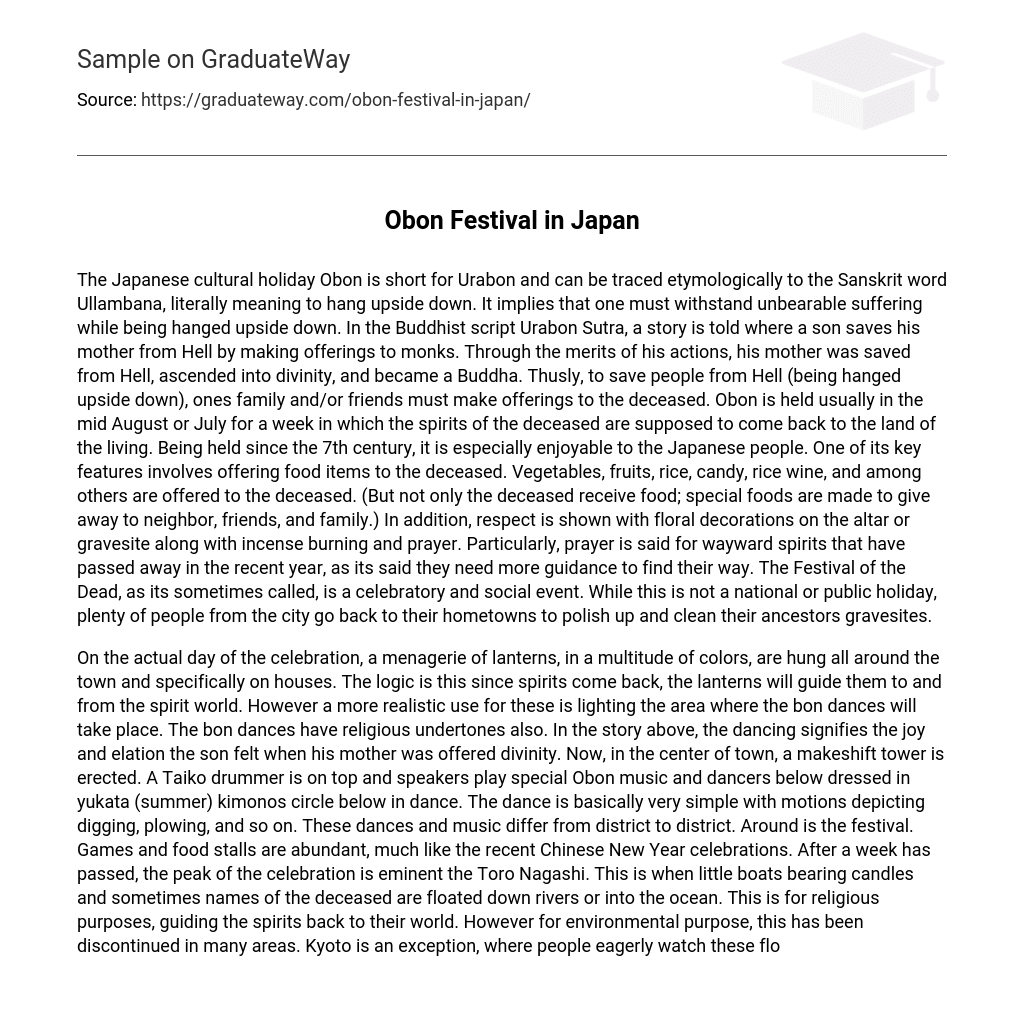Obon, a cultural holiday in Japan, is derived from the term Urabon and has its roots in the Sanskrit word Ullambana, which translates to “hang upside down.” This concept implies enduring immense suffering while being hung upside down. According to the Buddhist text Urabon Sutra, there is a story of a son who saves his mother from Hell by offering gifts to monks. As a result of his actions, the mother is rescued from Hell, attains divinity, and becomes a Buddha. Therefore, to save individuals from Hell (the state of being hung upside down), it is necessary for their family and friends to make offerings to them. Obon typically takes place for a week in mid-August or July when it is believed that the spirits of the deceased return to the world of the living. Celebrated since the 7th century, this holiday holds great significance for the Japanese population. A key aspect of Obon involves offering various food items to the deceased, including vegetables, fruits, rice, candy, and rice wine, among others. However, it is not just the deceased who receive food; special dishes are also prepared to be shared with neighbors, friends, and family. Floral decorations are displayed on altars or gravesites as a sign of respect, along with the burning of incense and prayers. In particular, prayers are offered for spirits who have passed away in the past year, as they require additional guidance to find their way. Often referred to as the Festival of the Dead, Obon is a festive and social occasion.Although not an official or widely celebrated holiday, many individuals in the city return to their hometowns to diligently maintain and tidy their ancestors’ gravesites.
During the actual celebration day, various colored lanterns are hung around the town, including on houses, to guide spirits to and from the spirit world. These lanterns also serve the practical purpose of lighting the area for the bon dances, which have religious significance. The bon dances symbolize joy and elation felt by the son when his mother was offered divinity. In the town center, a makeshift tower is erected with a Taiko drummer on top and speakers playing special Obon music. Dancers in yukata kimonos circle below, depicting motions like digging and plowing. Each district has its own unique dances and music. The festival includes games and food stalls, similar to Chinese New Year celebrations. After a week, the peak of the celebration is marked by Toro Nagashi, where little boats with candles and sometimes names of the deceased are floated in rivers or the ocean. This practice guides spirits back to their world, although it has been discontinued in many areas due to environmental concerns. Kyoto is an exception where people eagerly watch these floats. At the end of the week, preparations are undone and everyone returns home.Public transportation is frequently overcrowded and feels like hell, with capacity exceeding its limits. Once the journey ends, spirits return to their world while the cheerful Japanese return to their own.





